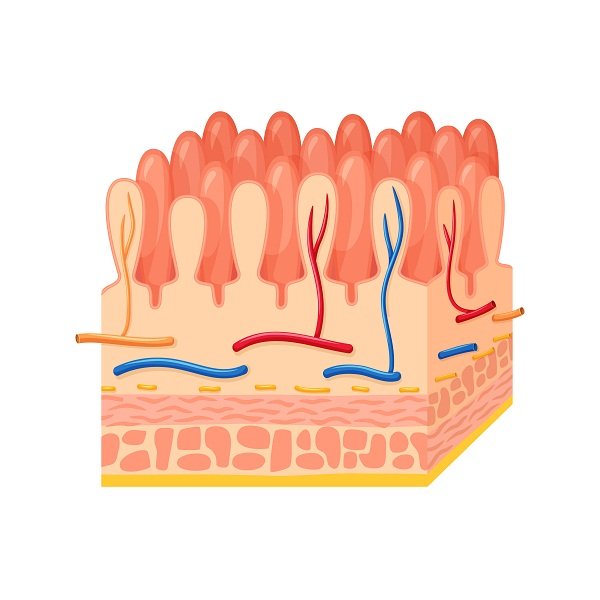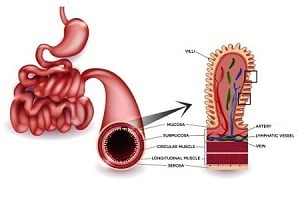What Is Celiac Disease?
- Updated on: Jun 5, 2024
- 3 min Read
By
- Published on Sep 27, 2019
Celiac Disease
Celiac disease is also known as Coeliac disease. It is an autoimmune (immune system attacks healthy cells of the body by mistake) disorder that particularly affects small intestine.

When people affected by celiac disease eat gluten (various proteins found in wheat and other grains like barley and rye), a reaction is triggered which damage the finger-like villi (projections in small intestine which helps to absorb digested food) of the small intestine.
Damage to the villi may be in the form of:
Villi inflammation
The cells in the small intestine are only one cell thick and are adjacent to the one cell thick blood vessels (capillaries). This arrangement of cells and capillaries helps in the absorption of the nutrients from your food directly from the villi into the bloodstream.
The spaces between the cells are called ‘Tight Junctions’. These tight junctions begin to spread apart after inflammation, thus causing larger food molecules to ‘leak’ through these junctions directly into the bloodstream leading to a problematic condition known as ‘leaky gut syndrome’.
The symptoms of the leaky gut may include:
- Constipation
- Diarrhea
- Bloating and gastric problems
- Poor immune system
- Headache
- Memory loss
- Nutritional deficiency
- Craving for sugar
- Joint pain
- Depression
If this condition is not treated properly, the inflammation increases and cells continue to be damaged. It then leads to breakdown of immune cells. This makes the patient susceptible to all kinds of infections, especially digestive tract infections.
Villi flattening
Flattened villi are the result of inflamed villi that have eroded away. Villi don’t disappear suddenly but they erode gradually with time. The more inflamed villi are, the more quickly they will erode or damage. Villi flattening are therefore the consequence of villi inflammation.
In celiac disease, the surface area of the bowel available for nutrient absorption is reduced. When the villi are damaged, the body cannot absorb the nutrients. If the disease is not treated properly and on-time, this may cause a lot of other problems, which may include:
- Malnourishment
- Loss of bone density
- Infertility
- Miscarriages
- Neurological diseases
- Other autoimmune diseases
- Thyroid
- Onset of cancer etc.
How common is celiac disease?
It is estimated that this disease affects 1 among 100 people worldwide. Nearly 80 percent of the people remain undiagnosed. It means a large number of people who have celiac disease don’t know that they are affected.
Who gets celiac disease?
This disease can affect anyone, of any age and both men and women. It is a genetic disorder, which means it runs in the family. If a person is affected by celiac disease, his family members have 10 percent risk of developing it. There are two genes, which are associated with susceptibility to celiac disease:
- HLA DQ2
- HLA DQ8
If one of the identical twins has celiac disease, there are 70 percent chances that the other twin may also suffer from it. It may not be necessary that the disease is diagnosed at the same time in both the twins.
If any person in a family is affected by celiac disease, it is necessary that other persons of the family should go for a screening (if not done previously).
Can celiac disease be cured?
Celiac disease cannot be cured completely. However, it can be managed efficiently. The only solution to this disorder is lifelong gluten-free diet. If the patient follows a strict gluten-free diet with proper medications and continuous exercise, the condition can be controlled.
Basically, gluten-free diet heals the lining of the bowel and slowly reduces the symptoms of the disease. But if gluten is reintroduced in the diet, then relapse (deterioration after a temporary improvement) may occur.












